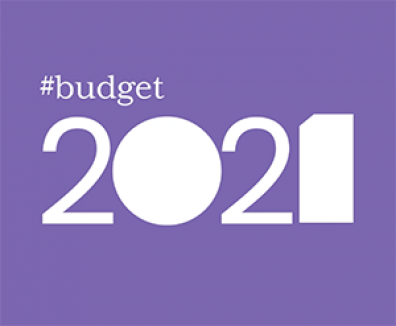Childcare is missing piece of our Covid-19 response in Budget 2021
Published: Tuesday, October 13, 2020

Responding to the Budget 2021 announcement today, the National Women’s Council (NWC) welcomed the Government response to the economic and social impact of the Covid-19 crisis, particularly as the pandemic restrictions have disproportionately affected women. It is extraordinary, however, that no additional investment is being made into delivering a public model of childcare when the pandemic clearly exposed how crucial childcare is for the functioning of our society and economy.
Orla O’Connor, Director of NWC said,
EWSS
“We welcome the extension of the Employment Wage Subsidy Scheme beyond March 2021 and call on the Government to commit to keeping it at the same level as this will provide certainty for families. This measure will particularly benefit women who are overrepresented in the sectors that are worst affected by the Covid-19 crisis, such as the hospitality and retail sector.”
Childcare
“It is extraordinary to see no additional investment into Early Years Education and Afterschool Care when the costs of childcare are amongst the highest in the EU and investment is at such a low level. The Covid-19 crisis has really highlighted that Early Years care and education is an essential public service. We also saw that the current market approach to childcare is unsustainable. NWC calls on the Government to use the National Economic Plan for significant investment into public childcare provision.”
Family Leave
“We welcome the 3 weeks increase in parents leave and expect the Government to deliver on its commitment to increase paid parents leave to 7 weeks in line with the First Five Plan. Longer term NWC is calling on the Government to increase paid parents and parental leave to 26 weeks so that parents have a real choice of staying at home during the first year of their child’s life.”
She continued,
Living Alone Allowance and pension
“We welcome the decision to increase the living alone allowance which will particularly help women and disabled people. We know that 62% of those aged over 65 and living alone are women and that older women are also much more likely to experience poverty than men. For disabled people it will help to address some of the additional costs of disability.
“We welcome the decision to defer the increase in our pension age and look forward to working with the Government to develop a permanent future for the State pension. Funding a universal, State pension with real choice with regard to pension age is crucial if we are serious about closing the significant gender pension gap.”
Core social welfare payments
“We are disappointed to see no increase in core social welfare payments. There has been much debate on the level of the Covid-19 income supports and for how long we can continue to pay these before we revert back to the regular system of welfare payments. However, a return to ‘normal’ will not support women and in particular, lone parents, 86% of whom are women. What the increases in the Covid income supports really highlighted is that core social welfare rates are not sufficient for a decent standard of living.”
Gender Budgeting
“We need to recognise that women came into this budget from an already unequal place and the pandemic has exposed those inequalities. While Budget 2021 will help to alleviate some of the impact of the Covid-19 crisis on women, it does not address the structural inequalities that women continue to experience. We call on the Government to renew their commitment to fully gender and equality proof all budget decisions. A feminist recovery needs to be at centre of our response to Covid-19 to deliver sustainable and meaningful change for women.”
Ends/
For more information, please contact Silke Paasche, Head of Communications, National Women’s Council (NWC), Tel. 085 858 9104.
